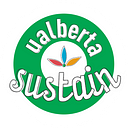“Reconceiving notions of power”: Making visible Métis women’s practices of wellness
Cindy Gaudet shares insights into how she conducts research in her ancestral home community
Originally published August 9, 2019
Like most Campus Saint-Jean professors, Cindy Gaudet loves working in a small community, supported by strong connections and with the room to experiment. But we’re not talking about Bonnie Doon here.
Gaudet lives and works in the St-Louis and St-Laurent-Grandin area of Saskatchewan, about 20 minutes north of Batoche, an historical Métis area. Her doctoral research examined land-based wellness practices in a Northern Ontario Indigenous community. Having returned to Saskatchewan, Gaudet is now developing methodologies based on Métis women’s wellness practices. Her work is community-engaged, collaborating with local artists, Métis scholars and Elders and ensuring her research contributes to community resilience.
As part of that, she is helping the River Women Collective host Walking With Our Sisters on August 15–18, 2019. It will be the final installation of the commemorative art exhibit of over 2,000 pairs of moccasin vamps (tops) honoring the lives of missing and murdered Indigenous women. Earlier this year, we interviewed Gaudet about how she approaches this type of community-engaged research.
You live in and are helping your community, but you’re also doing research. What sort of benefit does your academic work bring to the community?
This research really privileges local knowledge, and it creates a greater sense of belonging and it shows the importance of making visible the beauty of Métis identity, Métis women’s knowledge and Métis values. So one aspect of the project is interviewing and doing digital storytelling with the Elders in the community. What’s come out of that — in terms of being beneficial to the community — is the preservation of their own stories and preservation of their own knowledge. Now these stories are actually being used inside of the school by one of the local Métis teachers. The students are listening to their Elder, Sophie McDougall, and the teacher shared with me that it’s like she’s become the grandmother to all the students in this classroom.
What about yourself, as an academic — is there a particular strength to this approach that you see for yourself as a researcher?
Yes, for sure. Because I’m already arriving in relationship, I already show up knowing that I have certain ethical responsibilities and obligations to the community. You know, I have five generations of my ancestors that are part of that whole area. The revitalization in the community is my life revitalization also. I’m not separate from anything that I do. I can’t just walk away, I can’t close the door and leave work, because it’s part of me. It lives inside of me. It’s in my blood, it’s in my history, it’s in my everything.
What’s a major learning you’re taking away from this research so far?
The importance of gathering as women. We’ve seen an increase of Métis women and families taking back our lands, the knowledge of our lands, and the teachings of our lands. So gathering in our own spaces, and defining and determining wellness for ourselves — that’s a major theme.
Visiting [keeoukaywin] was the heart of living and being well, and the heart of our educational and learning systems. It’s how we took care of each other: visit ourselves, visit each other, visit our relations, visit the land, visit the river, visit our old knowledge, our Elders’ stories.
What important practices emerge out of gathering and visiting?
There was a Métis Elder at an interview, years ago when I was doing my Master’s, named Rose Fleury from Duck Lake. She said, “women need to gather again, because that’s how things change politically, socially and economically.” And so, we’re kind of testing her teaching and her wisdom, to see what does occur when we visit.
— -
Want to take part in Walking With Our Sisters? This outdoor installation will be open to the public August 15–18, 2019 on the Batoche National Historical Site: East Village. Everyone is welcome. If you wish more information or would like to volunteer, please email wwosbatoche2019@gmail.com or visit WWOS Batoche on Facebook for the latest updates.
